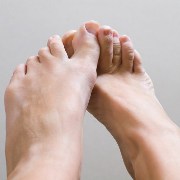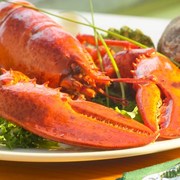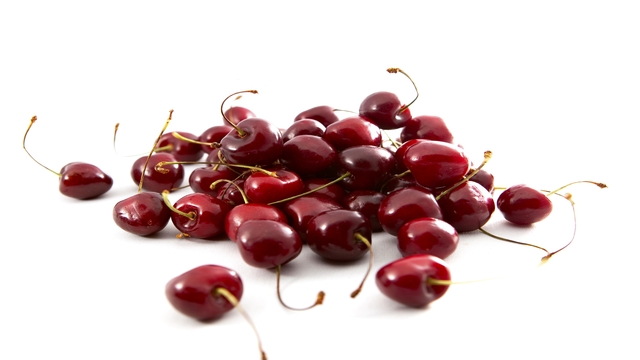it appears as if he may not need hip surgery but the gout or acid build up is creating the pain in the back and the hip. is this possible? He also has only one kidney. Could this be what{s causing the acid build up? I can certainly use your help on this one. Can´t have enough eyes looking for the answers. Don{t want him to have unnecessary surgery if at all possible. Thanks for all your help. So happy to have the help of so many of you at EmpowHER
All user-generated information on this site is the opinion of its author only and is not a substitute for medical advice or treatment for any medical conditions. Members and guests are responsible for their own posts and the potential consequences of those posts detailed in our Terms of Service.





Add a Comment8 Comments
Of note, when you are working out (cardio at fat burning levels) I found that an additional dose of the Bragg Apple Cider Vinegar the last thing before bed--2 TB in 8 oz of water--was helpful to keep alkalized because excess uric acid is stored in fat and when you are fat burning in cardio exercises (for me that's walking on treadmill 30 minutes with heart rate between 129-149 as calculated for me by my trainer), you are releasing the stored uric acid into the bloodstream, thus again raising the uric acid level in the bloodstream. During times of high stress the above will also be of benefit.
April 5, 2012 - 8:28amThis Comment
I found that yeast is used in a lot of processed (boxed) foods as well as breads. It's in Campbell's soups as well as many things that you don't even realized. Read labels. Eat things in moderation, that's what my dietitian told me--don't stress over certain foods but limit the intake of them. This was particularly important because I have kidney stones (oxylase content) and foods that are good for gout are bad for kidney stones. It was very distressing at the first diagnosis of gout because I was wondering what I could eat--i.e. I will eat a sweet potatoe (high in oxylase) low in purines but not too often. I hope some of this info helps people because I know how absolutely painful GOUT is!
April 5, 2012 - 8:13amThis Comment
I have gout and was diagnosed January 2011. I research the internet and self-diagnosed before even going to the doctor. Unfortunately, it's a very painful disease. The upside is that you can control and stop the cycle by changing your lifestyle, which I have been doing since being diagnosed and experiencing the gout attack first hand...it's nothing you want to go through again! I went to a dietitian, who put me on a diet. I researched the internet and found resources for alkaline and acidity of foods. I stopped drinking diet soda and only drink coffee once a day and 2 liters of water per day without fail. I cut out beef for the most part, and only eat it rarely as well as shellfish. The most important thing I found on the internet was the use of Bragg Apple Cider Vinegar. I first read to take 1 TB in 1 TB of water twice a day after meals. This didn't work for me because I would: either forget, get lazy, or not have it with me. It was suggested to me to take it like this: 2 TB in 8 oz of water first thing in the a.m. before eating or drinking anything. I started doing that and it alkalized my body well enough that I stopped having the burning in my legs or twinges in my toe, or pain like a broken bone in my arch--gout symptoms. I have been working with a trainer since last year and belong to a gym. Stress causes gout as well as eating high purine foods. Exercise combats stress and helps weight loss. You have to change your lifestyle, be a little regimented in order to combat gout, but you can do it and do it without prescription gout medication. Go to www.bragg.com and check it out. You can buy it at healthfood stores. I lowered my cholesterol from 250 to 193 in less than a year as well. I lost at least 16 lbs (I have gained muscle mass as well). The website that I found most helpful is: www.gout-aware.com. It saved my life! I am a licensed massage therapist and I have to be healthy. I hope you try it--I tell everyone about it--that's how good it is. I don't have the money, time or desire to be sick. (p.s. cut out breads and eat rarely things with yeast)
April 5, 2012 - 8:06amThis Comment
A good and healthy diet reduces normal effects of gouts. Only natural gouts treatments for gouts are effective. Probably the most important element in the gout treatment is diet would be to steer clear of higher purine foods and meals that trigger the body to produce large amounts of uric acid. Some purines are created in the body and some come in the meals we consume. Eating foods higher in purine will increase the uric acid levels in your physique
http://gout-treatment.org/gout-treatment.html
December 21, 2011 - 10:43amThis Comment
I agree with you, Petersimon786. Is this Peter of the website www.gout-aware.com?
April 5, 2012 - 8:21amThis Comment
Hi Anonymous,
Thanks for your question-- and for looking for ways to help your husband :)
Gout is a result of the body either producing too much uric acid or not excreting enough. If your husband only has one kidney-- it could be that the one remaining is not excreting enough of the uric acid, resulting in gout. Now, when this happens uric acid builds up, forming sharp, needle-like urate crystals in a joint or surrounding tissue that cause pain, inflammation and swelling.
The pain in the back that your husband is feeling, can be a result of possible Kidney Stones from urate crystals that may collect in the urinary tract. So, for this, I would recommend seeing a doctor that can verify or rule out kidney stones. Most of the time, surgery for kidney stones is not needed--depending of the size of the stone.
As far as medications for gout itself, here are some used to treat acute attacks and prevent future attacks:
Nonsteroidal anti-inflammatory drugs (NSAIDs). NSAIDs may control inflammation and pain in people with gout. Your doctor may prescribe a higher dose to stop an acute attack, followed by a lower daily dose to prevent future attacks.
NSAIDs include over-the-counter options such as ibuprofen (Advil, Motrin, others) and naproxen (Aleve, others), as well as more powerful prescription NSAIDs such as indomethacin (Indocin). NSAIDs carry risks of stomach pain, bleeding and ulcers.
Colchicine. If you're unable to take NSAIDs, your doctor may recommend colchicine, a type of pain reliever that effectively reduces gout pain — especially when started soon after symptoms appear. The drug's effectiveness is offset in most cases, however, by intolerable side effects, such as nausea, vomiting and diarrhea.
After an acute gout attack resolves, your doctor may prescribe a low daily dose of colchicine to prevent future attacks.
Corticosteroids. Corticosteroid medications, such as the drug prednisone, may control gout inflammation and pain. Corticosteroids may be administered in pill form, or they can be injected into your joint. Corticosteroids are generally reserved for people who can't take either NSAIDs or colchicine.
Side effects of corticosteroids may include thinning bones, poor wound healing and a decreased ability to fight infection. To reduce the risk of these serious side effects, your doctor will try to find the lowest dose that controls your symptoms and prescribe steroids for the shortest possible time.
Drugs used to prevent the complications associated with frequent gout attacks include:
Medication that blocks uric acid production. Drugs called xanthine oxidase inhibitors, including allopurinol (Zyloprim, Aloprim) and febuxostat (Uloric), limit the amount of uric acid your body makes. This may lower your blood's uric acid level and reduce your risk of gout. Side effects of allopurinol include a rash and low blood counts. Febuxostat side effects include rash, nausea and reduced liver function.
Xanthine oxidase inhibitors may trigger a new, acute attack if taken before a recent attack has totally resolved. Taking a short course of low-dose colchicine before starting a xanthine oxidase inhibitor has been found to significantly reduce this risk.
Medication that improves uric acid removal. Probenecid (Probalan) improves your kidneys' ability to remove uric acid from your body. This may lower your uric acid levels and reduce your risk of gout, but the level of uric acid in your urine is increased. Side effects include a rash, stomach pain and kidney stones.
All the best!
Rosa
http://www.mayoclinic.com/health/gout/DS00090
May 5, 2011 - 1:00pmhttps://www.empowher.com/condition/gout
This Comment
Indocin is very effective in stopping a gout attack if you are also managing your gout with diet (cutting out high purine foods) and drinking 2 liters of water a day) if you take it at the first sign of gout attacks. Taking Apple Cider Vinegar 2 TB in 8 oz water first thing when you wake up daily along with the diet and water (as above) will help keep your body more alkaline and less acidic so that you won't need to be taking Indocin too often or at all. During my first and so far only gout attack (because I decided to take the healthy road and fight my way out of the gout attacks) I was placed on Indocin, a 10 day pack of steroids, and Tramadol. I take high blood pressure. One morning I took the above pills, drank coffee and drove to work. When I arrived 30 min later I felt like I was going to pass out. I felt like my heart rate was rapid so I checked it and it was 90. Luckily I phoned the Walgreens pharmacy where I get my medications and explained the situation to the pharmacist (if I had not called the pharmacist, I was going to call 911 because I felt like it was that urgent and I was going down). She told me to take another high blood pressure pill. I did and within 20 min I was okay. I had to stop drinking coffee for awhile after developing gout even after the completion of the high power medications.
April 6, 2012 - 5:31amThis Comment
Hi Anonymous,
May 4, 2011 - 6:01pmI can understand your concern to avoid unnecessary surgery and yet find the best treatment for your husband. Gout is a painful form of arthritis caused by having higher than normal levels of uric acid in your body.The uric acid builds up in the fluid around the joints and uric crystals form. The crystals cause inflammation. The exact cause of gout is unknown, however, individuals with kidney disease, diabetes, leukemia and obesity are at increased risk.
I would suggest that your husband make an appointment with a rheumatologist. With a thorough examination and appropriate diagnostic testing, the rheumatologist can determine the cause of pain in your husband's hip and back and rule out degenerative bone disease versus gout. I hope this information has been helpful. Please keep us posted and contact us again if we can be of further assistance.
This Comment